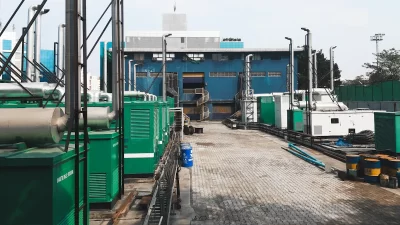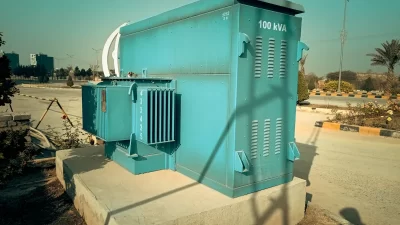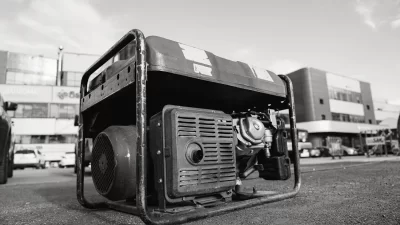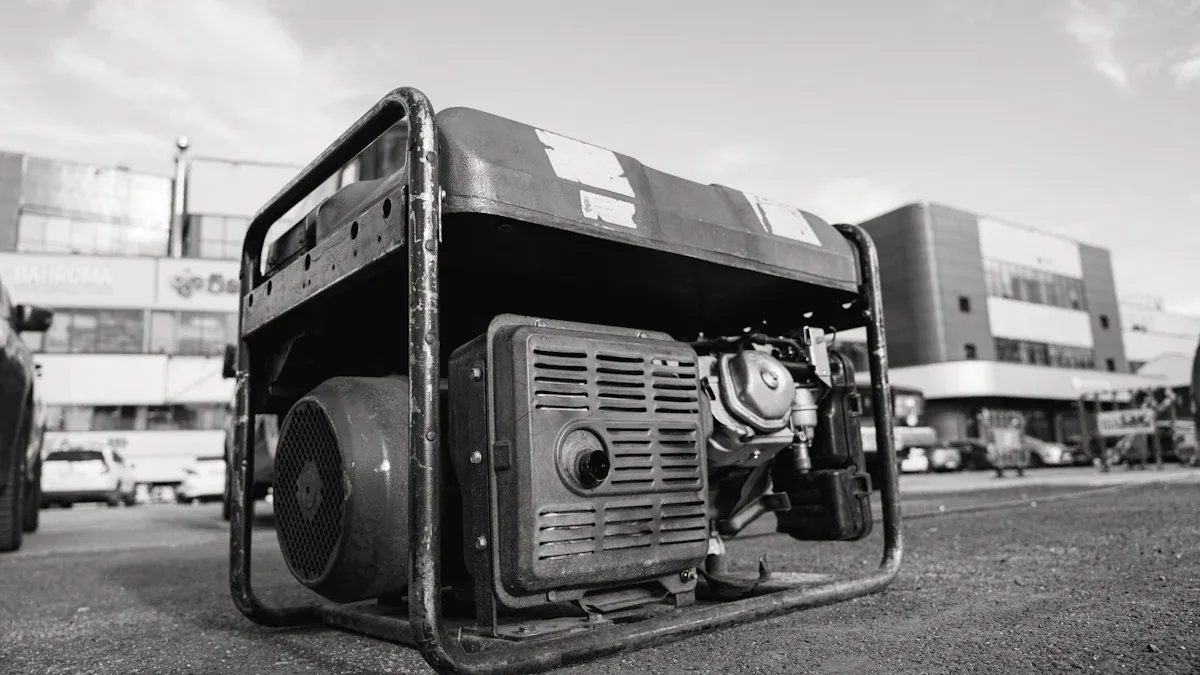
You want to save money and skip the stress when shopping for a generator, right? Used Second-hand Generators make that possible. More homeowners and small business owners rely on generators now because power outages happen more often.
You can keep your fridge or medical equipment running, or make sure your business stays open during blackouts.
New technology means generators run quieter and smarter than ever.
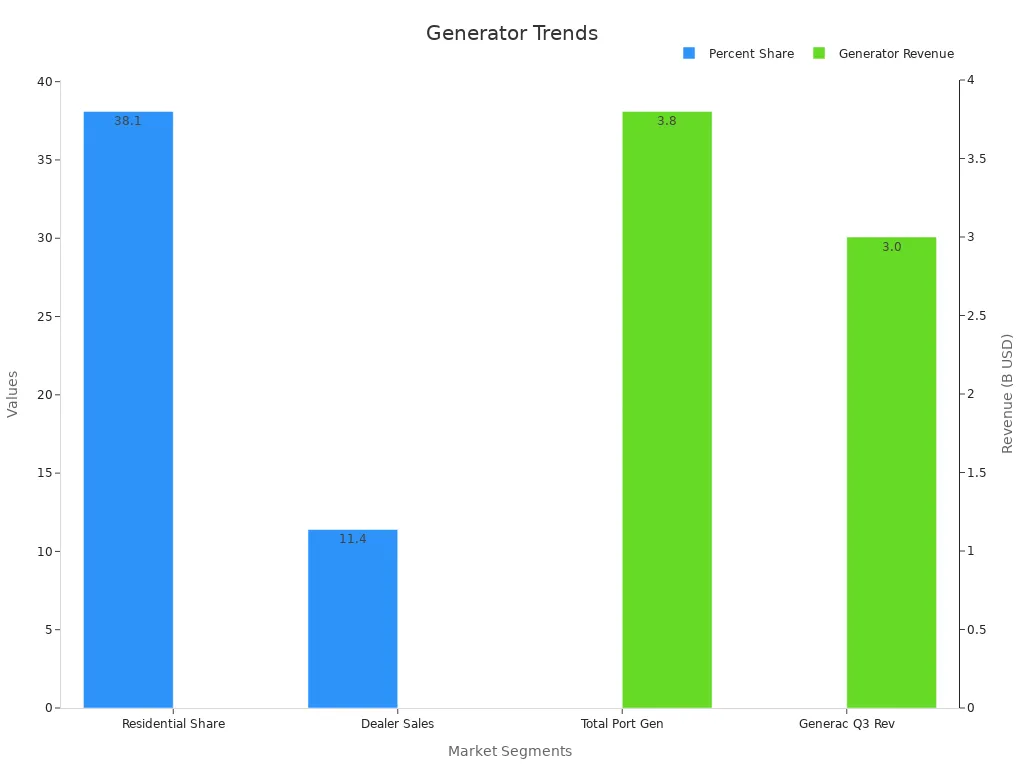
If you have never bought a generator before, you will find that the process is easier than you think.
Key Takeaways
Used second-hand generators can save you 30% to 90% compared to new models, helping you keep more money in your pocket.
Buying used generators reduces stress by offering fast availability and a simpler buying process with less paperwork.
Always inspect a used generator carefully, checking for damage, engine hours, and maintenance records to ensure reliability.
Choose trusted sellers who provide clear service history, let you test the generator, and offer good after-sales support.
Real users report that used generators work well, save money, and provide peace of mind during power outages.
Save Money

Lower Cost
You want to keep more cash in your pocket, right? Used Second-hand Generators make that possible. When you compare prices, the difference is huge. Buying a used generator can save you anywhere from 30% to 70% compared to a new one. In some cases, like with used nitrogen gas generators, you might pay only 10% to 20% of the price of a new model. That means you could save up to 90%!
Let’s look at some numbers. New commercial diesel generators often start at $22,000. The price goes up if you need more power or extra features. If you look at the cost per kilowatt, new generators usually run between $300 and $450 per kW. Used Second-hand Generators offer a much lower upfront cost. You get the power you need without draining your savings.
Tip: Always check the condition and maintenance history. A well-kept used generator can give you great value for less money.
Depreciation
New generators lose value fast. The moment you buy a new one, it starts to drop in price. Used Second-hand Generators don’t lose value as quickly. You avoid the steepest part of the depreciation curve. Here’s a quick look at how new generators lose value over time:
Generator Type | Average Service Life (Years) | Annual Depreciation Rate (%) |
|---|---|---|
Light-Duty | 10 | 10 |
Heavy-Duty | 20 | 5 |
When you buy used, someone else has already taken the biggest hit on depreciation. If you ever decide to sell your generator later, you won’t lose as much money as you would with a new one.
Maintenance Savings
You might think used means more repairs, but that’s not always true. Many used generators come from businesses that kept them in top shape. Maintenance and parts for used models are often easier to find and cost less than for brand-new units. You can also find plenty of guides and videos online to help with simple fixes.
Used Second-hand Generators often use common parts.
You can find affordable service from local mechanics.
Many sellers include recent maintenance records, so you know what you’re getting.
Choosing a used generator means you spend less on both the purchase and the upkeep. That’s a win-win for your wallet.
Reduce Stress
Fast Availability
You want power when you need it, not weeks later. That’s where used second-hand generators shine. You can find them ready to go on online marketplaces and from local dealers. No need to wait for long shipping times or backorders. Many sellers list their generators as “immediately available,” so you can get backup power fast.
You can browse dozens of listings on sites like Alibaba or eBay.
Most sellers offer quick pickup or delivery.
You can deploy your generator right away, which is perfect during emergencies.
Note: Quick sourcing means you can solve your power problem before it becomes a crisis.
Reliable with Inspection
You might worry about reliability, but you can take control. A careful inspection makes all the difference. Check the engine for smooth starts and steady running. Look at the hour meter to see how much the generator has worked. Ask for maintenance records. These records show if the previous owner took care of the machine.
If you spot leaks, rust, or strange noises, walk away. A good used generator should run quietly and show no signs of heavy wear. Many sellers let you test the generator before you buy. This step gives you peace of mind and helps you avoid surprises.
Tip: Always ask for a demonstration. Listen for odd sounds and check for smoke or vibrations.
Simple Process
Buying a used generator often feels much easier than buying new. You skip the long paperwork and complicated financing. Most deals happen quickly, sometimes in just a day or two. You can pay, pick up, and start using your generator right away.
Less paperwork means less stress.
You avoid waiting for factory orders or special shipping.
Many sellers offer clear instructions and support.
Used Second-hand Generators make the whole process smoother. You get what you need without jumping through hoops or dealing with endless forms.
Used Second-hand Generators: Buying Tips
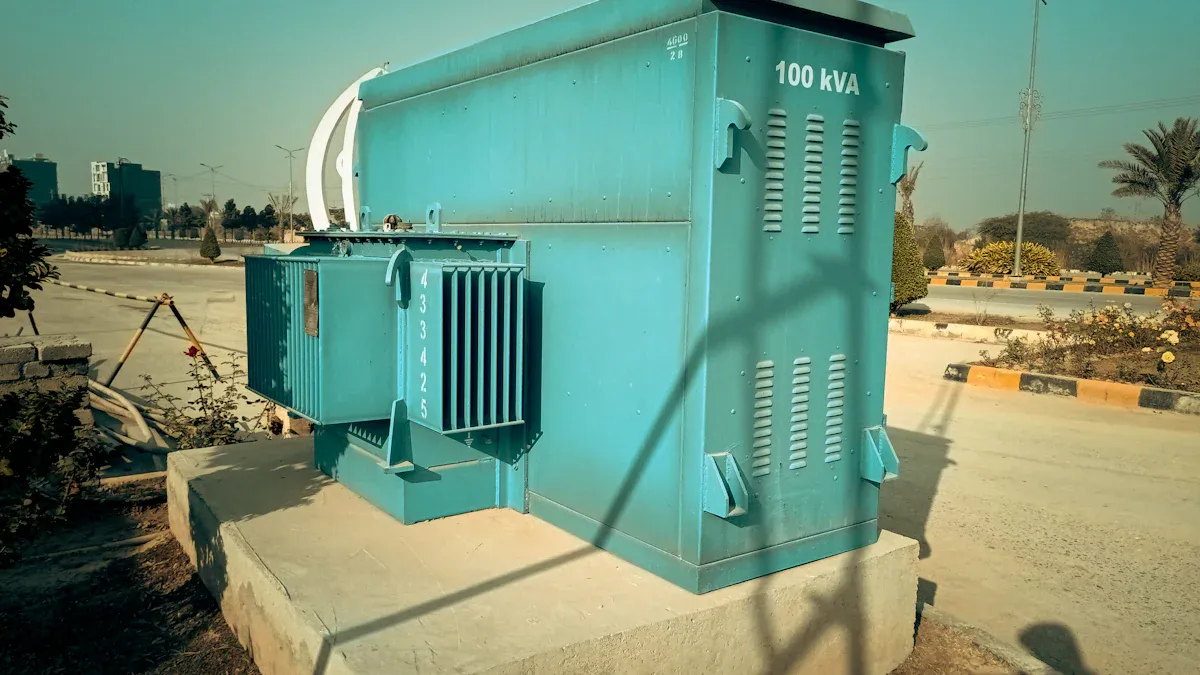
Inspection Points
You want your generator to work when you need it most. Start by checking the basics. Look for rust, dents, or cracks on the outside. These signs can mean the generator had a rough life. Next, check for leaks under the engine or fuel tank. Leaks often point to poor maintenance.
Don’t forget to check the engine hours. This number tells you how long the generator has run. Fewer hours usually mean less wear. You can find this on a digital gauge or in the paperwork. Ask for maintenance records. These show if the owner changed the oil, replaced filters, and kept up with repairs.
Here’s a quick checklist to guide you:
Inspect for visible damage, rust, or leaks.
Check engine hours and compare with maintenance records.
Test the engine—make sure it starts easily and runs smoothly.
Review service reports for regular oil changes and part replacements.
Listen for odd noises and watch for smoke during a test run.
Make sure all electrical connections look clean and tight.
Tip: Ask the seller to perform a load test. This shows if the generator can handle real power needs without trouble.
Trusted Sellers
Choosing the right seller makes a big difference. Look for dealers with a good reputation and lots of experience. Trusted sellers often work with well-known brands and provide detailed service records. They may even offer a short warranty or service guarantee.
Here’s what to look for:
Clear maintenance history and inspection reports.
Willingness to let you test the generator under load.
Fair pricing that matches the market.
Good reviews from other buyers.
After-sales support or help with setup.
Note: Reputable sellers usually inspect and service their generators before selling. This gives you extra peace of mind.
Avoid Mistakes
It’s easy to rush and miss something important. Many buyers skip the inspection or ignore signs of fuel system problems. Don’t make that mistake. Always check for leaks, test the generator, and review the paperwork. Avoid deals that seem too good to be true. If a seller won’t answer your questions or let you test the generator, walk away.
Common mistakes to avoid:
Skipping the inspection or test run.
Ignoring engine hours or missing maintenance records.
Overlooking leaks, rust, or odd noises.
Forgetting to ask about warranty or after-sales support.
Used Second-hand Generators can save you money and stress, but only if you take the time to check the details. A careful approach helps you get reliable backup power without surprises.
Real Stories
Cost Savings
You might wonder if real people actually save money with used generators. Let me share a few quick stories.
Maria’s Bakery: Maria runs a small bakery in a busy neighborhood. She needed backup power but did not want to spend a fortune. She found a used generator online for less than half the price of a new one. She used the savings to buy a new oven. Now, her bakery stays open during outages, and she keeps her customers happy.
Jake’s Workshop: Jake owns a woodworking shop. He picked up a used generator from a local dealer. He paid only 30% of what a new model would cost. Jake says, “I got the same power for way less money. It works great, and I didn’t have to dip into my emergency fund.”
Many small business owners like Maria and Jake say Used Second-hand Generators help them stretch their budgets and keep their businesses running.
Stress-Free Use
You want backup power without headaches. Real users say the process can be smooth and easy.
Tina’s Home: Tina lives in a rural area where storms often knock out power. She bought a used generator from a trusted seller. The seller showed her how to use it and gave her the maintenance records. Tina says, “It started right up during the last storm. I felt prepared and calm.”
Sam’s Office: Sam manages a small office. He found a used generator that came with a short warranty. The seller handled all the paperwork. Sam says, “The whole process took just two days. I didn’t have to worry about anything.”
If you want to save money and avoid stress, you can follow the same path. Used Second-hand Generators offer real value and peace of mind.
You want backup power that saves you money and keeps things simple. Used Second-hand Generators check both boxes.
You can save up to 90% compared to new models, and many come with warranties or return policies for peace of mind.
These generators often arrive in like-new condition, with updated features and support from trusted sellers.
The market for backup power keeps growing as more people face outages and storms. Now is a smart time to explore used options. You make a wise choice for your wallet and your peace of mind.
FAQ
How do I know if a used generator is reliable?
Ask for maintenance records and check the engine hours. Test the generator before you buy. If the seller lets you run it under load, you can see how it performs. Trust your gut—walk away if something feels off.
Can I get a warranty on a used generator?
Some sellers offer short warranties or service guarantees. Always ask before you buy. A warranty gives you extra peace of mind, especially if you are new to generators.
What size generator do I need for my home or business?
Make a list of the devices you want to power. Add up their wattage. Choose a generator that can handle a little more than your total. This way, you avoid overloading the unit.
Tip: Many sellers can help you calculate the right size!
Where can I find trusted sellers for used generators?
You can check local dealers, online marketplaces, or specialized generator shops. Look for sellers with good reviews and clear service records. Ask friends or business owners for recommendations.
